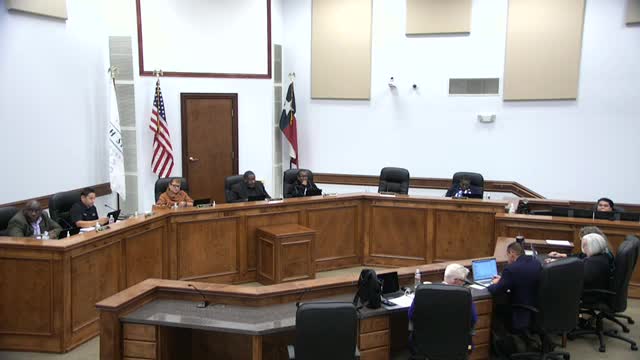Consultants recommend all‑way stop at Seagoville and Kleberg after high crash history
Get AI-powered insights, summaries, and transcripts
Subscribe
Summary
A Freese & Nichols study presented to the Balch Springs City Council found 99 crashes at the Seagoville Road and Kleberg Road intersection over five years and recommended installing an all‑way stop as a low‑cost safety measure; the city is awaiting TxDOT jurisdictional clarity before implementation.
A traffic study presented Nov. 10, 2025 to the Balch Springs City Council recommended converting the Seagoville Road and Kleberg Road intersection to an all‑way (four‑way) stop to address frequent angle crashes and risky maneuvers by side‑street drivers.
Consultant Sandeep Faldu of Freese & Nichols told the council the team pulled five years of crash data and collected 24‑hour traffic counts. "There were 99 crashes at the intersection," Faldu said, and "the intersection does not meet the criteria for installing a traffic signal based on current traffic and crash data." Faldu said angle collisions accounted for about 87% of crashes and failure to yield and driver inattention were leading contributors.
Faldu said signal warrants in the Manual on Uniform Traffic Control Devices were not met, but one of the all‑way stop criteria was met because recent crash experience suggested the intersection was correctable by an all‑way stop. "Based on criterion B, an all‑way stop control meets the warrant," he said, and estimated implementation costs at about $5,000 for signs, striping and markings. The consultant cited a Federal Highway Administration finding that converting intersections can reduce crashes by an estimated 36% and presented a model that put potential annual crash‑cost savings at roughly $1.1 million.
City staff and council members raised jurisdictional and operational concerns. A council member asked whether the city could install signs near a TxDOT bridge; staff replied that parts of the nearby bridge and approaches fall under TxDOT control and the city is "waiting on clarity from TxDOT" before final implementation. As staff warned, adding stop control on the east or west approach could back traffic up toward the freeway ramps and would need coordination with TxDOT.
Council members thanked the consultants for the study and asked staff to continue pursuing TxDOT's review. Faldu noted the all‑way stop is a reversible, low‑cost first step that can be implemented quickly while long‑term interchange improvements by TxDOT remain under consideration.
Next steps: staff will provide additional coordination with TxDOT and follow the city's typical sign‑installation process if TxDOT clears local implementation.
